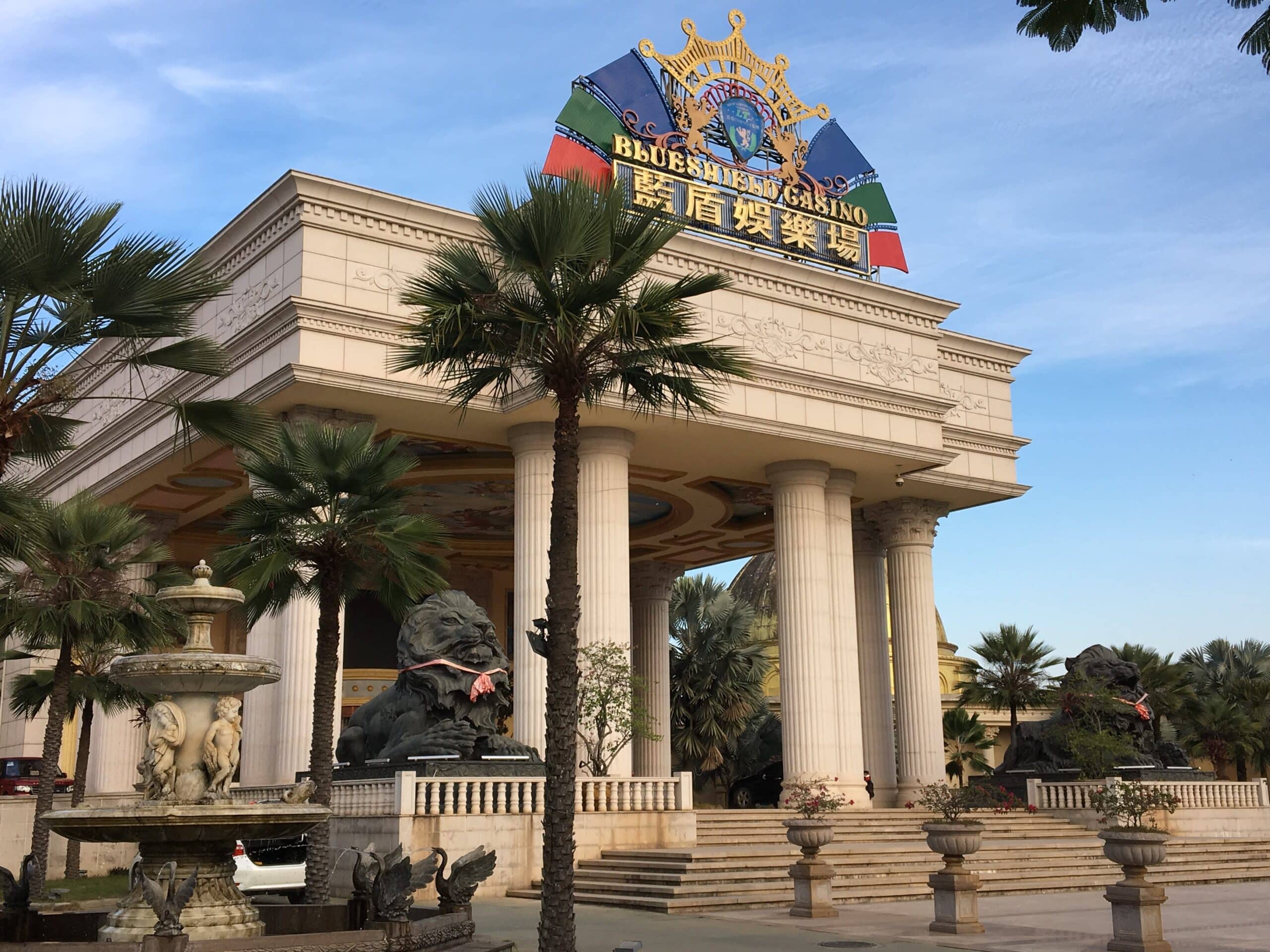Two of the world’s leading experts on ivory and rhino horn trade recently visited the seedy world of an opulent gambling mecca in the middle of the Laotian jungle, called Kings Romans [sic], and were stunned by what they found.
Acting on reports that illegal ivory trade markets were mushrooming all over Laos and other parts of Asia, the two ECF-funded consultants, Lucy Vigne and Esmond Bradley Martin, embarked on a one month investigation in the country. Their trip included a visit to the notorious Kings Romans.
Kings Romans is a 30-square-kilometer, tax-free, private concession in the mountainous jungles of north-western Laos. Boasting a luxury resort, spas, a golf course, a yacht club, and helicopter tours, it is a hotspot for gambling and prostitution. Most of its visitors come from across the nearby border with China. Here in Kings Romans Vigne and Martin discovered a seething market in illegal wildlife trade. They saw cages of live tigers and bears which would later be killed for their bones, skins, bile, flesh, and paws.
The stores were also selling small trinkets made from processed elephant ivory and rhino horn. Most of the 1,014 illegal ivory pieces discovered by Vigne and Martin in Kings Romans were mass produced small items such as bangles, pendants, and chopsticks but there were also larger pieces such as carved tusks.
“Kings Romans is the perfect place for opportunist Chinese to sell illegal ivory trinkets to tourists,” says Vigne. “The fact they displayed it openly made a mockery out of law enforcement in Laos.”
As the only westerners in Kings Romans, Vigne and Martin were being watched soon after they had arrived. Whenever possible, they engaged in conversation with the dealers but were unable to take photographs of the ivory items for fear of retribution.
“We had to be very careful and felt very exposed, but the investigation gave us some crucial findings into illegal ivory trade and provided further proof that despite the China ban on legal ivory trade, other routes are opening up like cancerous growths throughout Asia,” says Vigne.
Vigne and Martin’s Laos research, to be published in a full report in 2017, found that the trade in the country is now growing faster than anywhere else in the world. The research was part of a wider investigation into the growth of illegal ivory trade markets in Asia. In 2016, Vigne and Martin embarked on an ECF-funded indepth investigation in Vietnam after hearing reports that the country was becoming a market in ivory, rather than just a trafficking route.
Their alarming findings showed that the Vietnamese ivory market now posed a significant threat to Africa’s elephants. When their report was released in July 2016, it received considerable attention at an international level. The following October, a Vietnamese delegation at the Convention on International Trade in Endangered Species (CITES) meeting acknowledged the existence of the ivory problem and asked for help to combat it. This sort of support and cooperation from the Vietnamese government is essential in the efforts to shut down the ivory markets in Vietnam.
